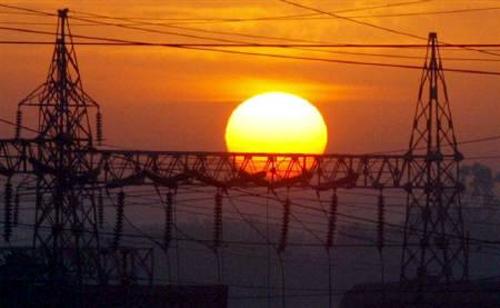The Rise Of India's Economic Independence From Pakistan, Turkey, And Azerbaijan

Table of Contents
Diversification of Trade Partnerships
India's proactive approach to global trade has been instrumental in achieving greater economic independence. This strategy involves reducing reliance on specific nations and building robust relationships with diverse economies.
Reducing Reliance on Traditional Markets
India's dependence on Pakistan, Turkey, and Azerbaijan for trade has significantly decreased. This diversification minimizes the risks associated with geopolitical instability or economic downturns in any single region, a key element of achieving India's Economic Independence.
- Increased trade with Southeast Asia (ASEAN): India has significantly expanded its trade relationships with ASEAN countries, accessing new markets and diversifying its supply chains. This includes increased exports of manufactured goods and services, and imports of raw materials and energy resources.
- Strengthened economic ties with the US, EU, and Japan: Strategic partnerships with these economic powerhouses provide access to advanced technologies, investment capital, and stable markets, bolstering India’s economic resilience and pursuit of India's Economic Independence.
- Focus on the African continent as a new source of resources and markets: India's engagement with African nations offers access to untapped resources and burgeoning consumer markets, contributing to its economic diversification and reducing reliance on traditional partners. This also fosters South-South cooperation.
- Expansion of bilateral trade agreements: India is actively negotiating and signing free trade agreements (FTAs) with various countries, aiming to reduce trade barriers and enhance economic cooperation. These agreements are crucial in promoting India's Economic Independence.
Promoting Domestic Manufacturing and "Atmanirbhar Bharat"
The "Atmanirbhar Bharat" (Self-Reliant India) initiative is a central pillar of India's strategy for achieving economic independence. This initiative emphasizes domestic production and reduced reliance on imports across various sectors.
- Incentives for domestic manufacturing and investment: The Indian government offers various incentives to attract domestic and foreign investment in manufacturing, creating jobs and boosting domestic production capacity. This is directly linked to the goal of India's Economic Independence.
- Emphasis on technological self-sufficiency: India is investing heavily in research and development to achieve technological independence in key sectors, reducing reliance on foreign technologies and fostering innovation. This is paramount to long-term India's Economic Independence.
- Promoting indigenous innovation and entrepreneurship: The government is actively supporting startups and entrepreneurs to drive innovation and create new industries, reducing dependence on foreign companies and strengthening domestic capabilities. This contributes significantly to achieving India's Economic Independence.
- Import substitution strategies in key sectors: India is implementing strategies to replace imports with domestically produced goods in crucial sectors, thereby enhancing self-sufficiency and national security, crucial aspects of India's Economic Independence.
Geopolitical Factors and Strategic Shifts
Geopolitical realities have significantly influenced India's economic strategies, prompting a shift away from reliance on potentially unstable regions.
Impact of Regional Instability
Tensions and conflicts involving Pakistan, Turkey, and Azerbaijan have underscored the risks of concentrating trade partnerships in volatile regions. This has motivated India to diversify its economic relationships and pursue India's Economic Independence.
- The Kashmir conflict and its impact on India-Pakistan trade: The ongoing Kashmir dispute has significantly impacted bilateral trade between India and Pakistan, highlighting the risks associated with concentrating trade with politically unstable neighbors.
- Turkey's increasingly assertive foreign policy and its impact on regional stability: Turkey's foreign policy has created uncertainties in the region, pushing India to seek more reliable and stable partners.
- Azerbaijan's complex geopolitical position and its impact on regional trade: Azerbaijan's geopolitical location and its relationships with other nations have presented challenges for consistent and reliable trade with India.
Strengthening Strategic Alliances
India has prioritized building strong economic relationships with countries aligned with its strategic interests, further reducing its dependence on Pakistan, Turkey, and Azerbaijan.
- Closer ties with the Quad (US, Japan, Australia, and India): The Quad framework provides a platform for cooperation on security and economic issues, reducing reliance on partners in less stable regions.
- Strengthened relationships with key players in the Indo-Pacific region: India is deepening its engagement with other Indo-Pacific nations, building a network of strong economic partnerships and fostering regional stability.
- Increased participation in multilateral trade agreements: India's active participation in multilateral trade forums reduces its dependence on bilateral relationships and promotes a more balanced global economic engagement.
Economic Reforms and Policy Changes
India's economic reforms and policy changes have been central to its growing independence from traditional trading partners.
Liberalization and Market-Oriented Reforms
India's ongoing economic liberalization has fostered a more competitive and globally integrated economy, attracting foreign investment and reducing reliance on specific trading partners. This is a crucial component of India's Economic Independence.
- Easing of foreign investment regulations: Relaxing regulations has made India a more attractive destination for foreign investment, reducing dependence on specific trading partners.
- Simplification of bureaucratic processes: Streamlining bureaucratic processes has made it easier for businesses to operate in India, attracting investment and promoting economic growth.
- Improvements in infrastructure development: Investment in infrastructure has improved connectivity and efficiency, making India a more attractive destination for businesses and facilitating trade.
Focus on Sustainable and Inclusive Growth
India's emphasis on inclusive and sustainable growth strengthens its economic resilience, minimizing its dependence on potentially volatile external factors. This commitment underpins India's Economic Independence.
- Investment in renewable energy sources: Investing in renewable energy reduces dependence on fossil fuels and enhances energy security.
- Focus on rural development and poverty alleviation: Addressing poverty and promoting rural development creates a more resilient and inclusive economy.
- Promoting financial inclusion: Expanding access to financial services empowers individuals and businesses, fostering broader economic participation.
Conclusion
India's growing economic independence from Pakistan, Turkey, and Azerbaijan is a testament to its proactive economic diplomacy, strategic policy shifts, and commitment to self-reliance. Through diversification of trade partnerships, strategic alliances, and crucial economic reforms, India has significantly reduced its vulnerability to regional instability and economic fluctuations. This journey towards greater self-sufficiency, as exemplified by the "Atmanirbhar Bharat" initiative, positions India for continued economic growth and global influence. To further understand the complexities of this dynamic economic transformation, delve deeper into the intricacies of India's Economic Independence and its impact on the global stage.

Featured Posts
-
 Damiano David Sparks Kaytranada Bilbao Bbk Live 2025 Lineup Expands
May 18, 2025
Damiano David Sparks Kaytranada Bilbao Bbk Live 2025 Lineup Expands
May 18, 2025 -
 Major Jailbreak In New Orleans 11 Inmates Escape Multiple Murder Suspects At Large
May 18, 2025
Major Jailbreak In New Orleans 11 Inmates Escape Multiple Murder Suspects At Large
May 18, 2025 -
 A Comprehensive Guide To The Countrys Emerging Business Hot Spots
May 18, 2025
A Comprehensive Guide To The Countrys Emerging Business Hot Spots
May 18, 2025 -
 Bowen Yang Advocates For Cursing On Live Snl
May 18, 2025
Bowen Yang Advocates For Cursing On Live Snl
May 18, 2025 -
 Did Taylor Swift Prevent Kanye Wests Super Bowl Appearance
May 18, 2025
Did Taylor Swift Prevent Kanye Wests Super Bowl Appearance
May 18, 2025
Latest Posts
-
 Only Fans Amanda Bynes Surprising Announcement And Its Implications
May 18, 2025
Only Fans Amanda Bynes Surprising Announcement And Its Implications
May 18, 2025 -
 Dodgers Beat Mariners 6 4 As Conforto Hits First Home Run
May 18, 2025
Dodgers Beat Mariners 6 4 As Conforto Hits First Home Run
May 18, 2025 -
 Amanda Bynes Only Fans Content Rules And What To Expect
May 18, 2025
Amanda Bynes Only Fans Content Rules And What To Expect
May 18, 2025 -
 Amanda Bynes Only Fans The Unexpected Twist
May 18, 2025
Amanda Bynes Only Fans The Unexpected Twist
May 18, 2025 -
 Former Child Star Amanda Bynes Joins Only Fans A Strict Content Policy Explained
May 18, 2025
Former Child Star Amanda Bynes Joins Only Fans A Strict Content Policy Explained
May 18, 2025
